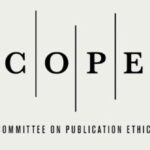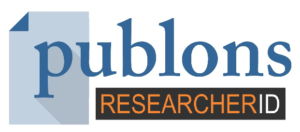Department of Pharmacology and Toxicology, College of Pharmacy, University of Mosul, Mosul, Iraq
![]() Corresponding author: zainal2010@uomosul.edu.iq
Corresponding author: zainal2010@uomosul.edu.iq
Received: May 28, 2022 / Revised: July 03, 2022/ Accepted: July 7, 2022
Abstract
COVID-19 infection is caused by a betacoronavirus, SARS-CoV-2. It is highly variable in symptoms and clinical outcomes, ranging from mild to fatal forms. Hyperactivation of the immune system is potentially the factor precipitating the severe forms and mortalities of this infection. Both adaptive and innate immune responses to COVID-19 infection determine the natural history and progression of COVID-19. Microbiome (MB) often refers to the microbial taxa associated with man. Microbiome has many host-related functions. The gut has the largest population of microbes, and thus may have a vast impact on host health. Microbiome is involved in evolution of innate and adaptive immune system in humans, among other functions. Perturbations in composition of MB are referred to as dysbiosis. Dysbiosis can coincide with COVID-19 itself and be also drug-induced. Antibiotics commonly prescribed to COVID-19 patients often exert deleterious effects on composition of gut MB. In light of host-related microbiome functions, this possibly has consequences impacting severity and outcome of COVID-19. Gut microbiome integrity can be a crucial factor in COVID-19 patients, thus antibiotic use, in light of its impact on gut flora, may adversely affect disease outcome; however, the extent of these aspects is still unclear. A rational antibiotic use strategy should be an integral part in all COVID-19 therapeutic plans.
Keywords Antibiotic, COVID-19, dysbiosis, Microbiome, SARS-CoV-2
References
Aagaard, K., Ma, J., Antony, K. M., Ganu, R., Petrosino, J., & Versalovic, J. (2014). The placenta harbors a unique microbiome. Science translational medicine, 6(237), 237ra65-237ra65.
Abid, M. A., Nunley, L., & Abid, M. B. (2020). Could coronavirus disease 2019 (COVID-19) render natural immunity to re-infections? a spotlight on the therapeutic pipeline. Frontiers in Immunology, 11, 1294.
Abid, M. B. (2019). Could the menagerie of the gut microbiome really cure cancer? Hope or hype. Journal for ImmunoTherapy of Cancer, 7(1), 1-7.
Abid, M. B., Mughal, M., & Abid, M. A. (2020). Coronavirus disease 2019 (COVID-19) and immune-engaging cancer treatment. JAMA oncology, 6(10), 1529-1530.
de Abreu, J. A. C., de Freitas, N. L., Azevedo, P. R. G., & Brandão, F. (2022). Probióticos–uma espada ou um escudo no desfecho da COVID-19?. Research, Society and Development, 11(4), e11011427165-e11011427165.
Abt, M. C., Osborne, L. C., Monticelli, L. A., Doering, T. A., Alenghat, T., Sonnenberg, G. F. & Artis, D. (2012). Commensal bacteria calibrate the activation threshold of innate antiviral immunity. Immunity, 37(1), 158-170.
Aktas, B. (2021). Gut Microbiota Dysbiosis and COVID-19: Possible Links. Reference Module in Food Science.
Arpaia, N., Campbell, C., Fan, X., Dikiy, S., Van Der Veeken, J., Deroos, P. & Rudensky, A. Y. (2013). Metabolites produced by commensal bacteria promote peripheral regulatory T-cell generation. Nature, 504(7480), 451-455.
Belkaid, Y., & Hand, T. W. (2014). Role of the microbiota in immunity and inflammation. Cell, 157(1), 121-141.
Belkaid, Y., & Harrison, O. J. (2017). Homeostatic immunity and the microbiota. Immunity, 46(4), 562-576.
Bradley, K. C., Finsterbusch, K., Schnepf, D., Crotta, S., Llorian, M., Davidson, S. & Wack, A. (2019). Microbiota-driven tonic interferon signals in lung stromal cells protect from influenza virus infection. Cell reports, 28(1), 245-256.
Bull, M. J., & Plummer, N. T. (2015). Part 2: treatments for chronic gastrointestinal disease and gut dysbiosis. Integrative Medicine: A Clinician’s Journal, 14(1), 25.
Cao, J., Wang, C., Zhang, Y., Lei, G., Xu, K., Zhao, N. & Yang, P. (2021). Integrated gut virome and bacteriome dynamics in COVID-19 patients. Gut microbes, 13(1), 1887722.
Chen, N., Zhou, M., Dong, X., Qu, J., Gong, F., Han, Y. & Zhang, L. (2020). Epidemiological and clinical characteristics of 99 cases of 2019 novel coronavirus pneumonia in Wuhan, China: a descriptive study. The lancet, 395(10223), 507-513.
Chung, H., Pamp, S. J., Hill, J. A., Surana, N. K., Edelman, S. M., Troy, E. B. & Kasper, D. L. (2012). Gut immune maturation depends on colonization with a host-specific microbiota. Cell, 149(7), 1578-1593.
Corman, V. M., Landt, O., Kaiser, M., Molenkamp, R., Meijer, A., Chu, D. K. & Drosten, C. (2020). Detection of 2019 novel coronavirus (2019-nCoV) by real-time RT-PCR. Eurosurveillance, 25(3), 2000045.
Dang, A. T., & Marsland, B. J. (2019). Microbes, metabolites, and the gut–lung axis. Mucosal immunology, 12(4), 843-850.
De La Cochetière, M. F., Durand, T., Lepage, P., Bourreille, A., Galmiche, J. P. & Dore, J. (2005). Resilience of the dominant human fecal microbiota upon short-course antibiotic challenge. Journal of clinical microbiology, 43(11), 5588-5592.
Derrien, M., Alvarez, A. S., & de Vos, W. M. (2019). The gut microbiota in the first decade of life. Trends in microbiology, 27(12), 997-1010.
Dethlefsen, L., Huse, S., Sogin, M. L., & Relman, D. A. (2008). The pervasive effects of an antibiotic on the human gut microbiota, as revealed by deep 16S rRNA sequencing. PLoS biology, 6(11), e280.
Dethlefsen, L., & Relman, D. A. (2011). Proceedings of the National Academy of Sciences, 108(Supplement 1), 4554–4561.
Dominguez-Bello, M. G., Costello, E. K., Contreras, M., Magris, M., Hidalgo, G., Fierer, N., & Knight, R. (2010). Delivery mode shapes the acquisition and structure of the initial microbiota across multiple body habitats in newborns. Proceedings of the National Academy of Sciences, 107(26), 11971-11975.
Donati Zeppa, S., Agostini, D., Piccoli, G., Stocchi, V., & Sestili, P. (2020). Gut microbiota status in COVID-19: an unrecognized player?. Frontiers in cellular and infection microbiology, 10, 576551.
Duboc, H., Rajca, S., Rainteau, D., Benarous, D., Maubert, M. A., Quervain, E. & Seksik, P. (2013). Connecting dysbiosis, bile-acid dysmetabolism and gut inflammation in inflammatory bowel diseases. Gut, 62(4), 531-539.
Enaud, R., Prevel, R., Ciarlo, E., Beaufils, F., Wieërs, G., Guery, B., & Delhaes, L. (2020). The gut-lung axis in health and respiratory diseases: a place for inter-organ and inter-kingdom crosstalks. Frontiers in Cellular and Infection Microbiology, 10, 9.
Fanos, V., Pintus, M. C., Pintus, R. & Marcialis, M. A. (2020). Lung microbiota in the acute respiratory disease: from coronavirus to metabolomics. Journal of Pediatric and Neonatal Individualized Medicine (JPNIM), 9(1), e090139-e090139.
Ferreira, C. M., Vieira, A. T., Vinolo, M. A. R., Oliveira, F. A., Curi, R. & Martins, F. D. S. (2014). The central role of the gut microbiota in chronic inflammatory diseases. Journal of immunology research, 2014.
Goodrich, J. K., Waters, J. L., Poole, A. C., Sutter, J. L., Koren, O., Blekhman, R. & Ley, R. E. (2014). Human genetics shape the gut microbiome. Cell, 159(4), 789-799.
Gou, W., Fu, Y., Yue, L., Chen, G. D., Cai, X., Shuai, M. & Zheng, J. S. (2020). Gut microbiota may underlie the predisposition of healthy individuals to COVID-19. MedRxiv.
Guan, W. J., Ni, Z. Y., Hu, Y., Liang, W. H., Ou, C. Q., He, J. X. & Zhong, N. S. (2020). Clinical characteristics of coronavirus disease 2019 in China. New England journal of medicine, 382(18), 1708-1720.
Han, C., Duan, C., Zhang, S., Spiegel, B., Shi, H., Wang, W. & Hou, X. (2020). Digestive symptoms in COVID-19 patients with mild disease severity: clinical presentation, stool viral RNA testing, and outcomes. The American journal of gastroenterology.
Han, H., Ma, Q., Li, C., Liu, R., Zhao, L., Wang, W. & Xia, Y. (2020). Profiling serum cytokines in COVID-19 patients reveals IL-6 and IL-10 are disease severity predictors. Emerging microbes & infections, 9(1), 1123-1130.
Hanada, S., Pirzadeh, M., Carver, K. Y., & Deng, J. C. (2018). Respiratory viral infection-induced microbiome alterations and secondary bacterial pneumonia. Frontiers in immunology, 9, 2640.
Harper, A., Vijayakumar, V., Ouwehand, A. C., ter Haar, J., Obis, D., Espadaler, J., Binda, S., Desiraju, S., & Day, R. (2021). Viral Infections, the Microbiome, and Probiotics In Frontiers in Cellular and Infection Microbiology. Vol. 10.
Hasan, N., & Yang, H. (2019). Factors affecting the composition of the gut microbiota, and its modulation. PeerJ, 7, e7502.
Heymann, D. L., & Shindo, N. (2020). COVID-19: what is next for public health?. The lancet, 395(10224), 542-545.
Hussain, I., Cher, G. L. Y., Abid, M. A., & Abid, M. B. (2021). Role of gut microbiome in COVID-19: an insight into pathogenesis and therapeutic potential. Frontiers in immunology, 4164.
Ichinohe, T., Pang, I. K., Kumamoto, Y., Peaper, D. R., Ho, J. H., Murray, T. S., & Iwasaki, A. (2011). Microbiota regulates immune defense against respiratory tract influenza A virus infection. Proceedings of the National Academy of Sciences, 108(13), 5354-5359.
Kariyawasam, J. C., Jayarajah, U., Riza, R., Abeysuriya, V., & Seneviratne, S. L. (2021). Gastrointestinal manifestations in COVID-19. Transactions of The Royal Society of Tropical Medicine and Hygiene, 115(12), 1362-1388.
Kelly, C. J., Zheng, L., Campbell, E. L., Saeedi, B., Scholz, C. C., Bayless, A. J., … & Colgan, S. P. (2015). Crosstalk between microbiota-derived short-chain fatty acids and intestinal epithelial HIF augments tissue barrier function. Cell host & microbe, 17(5), 662-671.
Knight, G. M., Glover, R. E., McQuaid, C. F., Olaru, I. D., Gallandat, K., Leclerc, Q. J., … & Chandler, C. I. (2021). Antimicrobial resistance and COVID-19: Intersections and implications. Elife, 10, e64139.
Kraft, S. C., Earle, R. H., Roesler, M., & Esterly, J. R. (1976). Unexplained bronchopulmonary disease with inflammatory bowel disease. Archives of Internal Medicine, 136(4), 454-459.
Kumar, P., & Chander, B. (2020). COVID 19 mortality: Probable role of microbiome to explain disparity. Medical hypotheses, 144, 110209.
Lagier, J. C., Armougom, F., Million, M., Hugon, P., Pagnier, I., Robert, C. & Raoult, D. (2012). Microbial culturomics: paradigm shift in the human gut microbiome study. Clinical Microbiology and Infection, 18(12), 1185-1193.
Lange, K., Buerger, M., Stallmach, A., & Bruns, T. (2016). Effects of antibiotics on gut microbiota. Digestive Diseases, 34(3), 260-268.
Le Chatelier, E., Nielsen, T., Qin, J., Prifti, E., Hildebrand, F., Falony, G. & Pedersen, O. (2013). Richness of human gut microbiome correlates with metabolic markers. Nature, 500(7464), 541-546.
Liu, Q., Mak, J. W. Y., Su, Q., Yeoh, Y. K., Lui, G. C.-Y., Ng, S. S. S., Zhang, F., Li, A. Y. L., Lu, W., & Hui, D. S.-C. (2022). Gut.
Louis, P., Young, P., Holtrop, G., & Flint, H. J. (2010). Diversity of human colonic butyrate‐producing bacteria revealed by analysis of the butyryl‐CoA: acetate CoA‐transferase gene. Environmental microbiology, 12(2), 304-314.
Marchesi, J. R., Adams, D. H., Fava, F., Hermes, G. D. A., Hirschfield, G. M., Hold, G., Quraishi, M. N., Kinross, J., Smidt, H., Tuohy, K. M., Thomas, L. V, Zoetendal, E. G., & Hart, A. (2016). The gut microbiota and host health: a new clinical frontierGut. (65),330-339.
Martin, A. M., Sun, E. W., Rogers, G. B., & Keating, D. J. (2019). The influence of the gut microbiome on host metabolism through the regulation of gut hormone release. Frontiers in Physiology, 10, 428.
McAleer, J. P., & Kolls, J. K. (2018). Contributions of the intestinal microbiome in lung immunity. European journal of immunology, 48(1), 39-49.
Menees, S., & Chey, W. (2018). The gut microbiome and irritable bowel syndrome. F1000Research, 7.
Oh, J. Z., Ravindran, R., Chassaing, B., Carvalho, F. A., Maddur, M. S., Bower, M. & Pulendran, B. (2014). TLR5-mediated sensing of gut microbiota is necessary for antibody responses to seasonal influenza vaccination. Immunity, 41(3), 478-492.
Palleja, A., Mikkelsen, K. H., Forslund, S. K., Kashani, A., Allin, K. H., Nielsen, T. & Pedersen, O. (2018). Recovery of gut microbiota of healthy adults following antibiotic exposure. Nature microbiology, 3(11), 1255-1265.
Pan, L., Mu, M. I., Yang, P., Sun, Y., Wang, R., Yan, J. & Tu, L. (2020). Clinical characteristics of COVID-19 patients with digestive symptoms in Hubei, China: a descriptive, cross-sectional, multicenter study. The American journal of gastroenterology, 115.
Petersen, C., & Round, J. L. (2014). Defining dysbiosis and its influence on host immunity and disease. Cellular microbiology, 16(7), 1024-1033.
Qin, J., Li, R., Raes, J., Arumugam, M., Burgdorf, K. S., Manichanh, C. & Wang, J. (2010). A human gut microbial gene catalogue established by metagenomic sequencing. nature, 464(7285), 59-65.
Rabi, F. A., Al Zoubi, M. S., Kasasbeh, G. A., Salameh, D. M., & Al-Nasser, A. D. (2020). SARS-CoV-2 and coronavirus disease 2019: what we know so far. Pathogens, 9(3), 231.
Rajilić-Stojanović, M., & De Vos, W. M. (2014). The first 1000 cultured species of the human gastrointestinal microbiota. FEMS microbiology reviews, 38(5), 996-1047.
Rath, C. M., & Dorrestein, P. C. (2012). The bacterial chemical repertoire mediates metabolic exchange within gut microbiomes. Current opinion in microbiology, 15(2), 147-154.
Rawson, T. M., Moore, L. S., Castro-Sanchez, E., Charani, E., Davies, F., Satta, G. & Holmes, A. H. (2020). COVID-19 and the potential long-term impact on antimicrobial resistance. Journal of antimicrobial chemotherapy, 75(7), 1681-1684.
Robinson, C. M., & Pfeiffer, J. K. (2014). Viruses and the microbiota. Annual review of virology, 1, 55.
Rothschild, D., Weissbrod, O., Barkan, E., Kurilshikov, A., Korem, T., Zeevi, D. & Segal, E. (2018). Environment dominates over host genetics in shaping human gut microbiota. Nature, 555(7695), 210-215.
Schirmer, M., Smeekens, S. P., Vlamakis, H., Jaeger, M., Oosting, M., Franzosa, E. A. & Xavier, R. J. (2016). Linking the human gut microbiome to inflammatory cytokine production capacity. Cell, 167(4), 1125-1136.
Schwartz, D. J., Langdon, A. E. & Dantas, G. (2020). Understanding the impact of antibiotic perturbation on the human microbiome. Genome medicine, 12(1), 1-12.
Sekirov, I., Russell, S. L., Antunes, L. C. M., & Finlay, B. B. (2010). Gut microbiota in health and disease. Physiological reviews.
Sender, R., Fuchs, S., & Milo, R. (2016). Revised estimates for the number of human and bacteria cells in the body. PLoS biology, 14(8), e1002533.
Sestili, P. & Stocchi, V. (2020). Repositioning chromones for early anti-inflammatory treatment of COVID-19. Frontiers in Pharmacology, 11, 854.
Siddiqi, H. K., & Mehra, M. R. (2020). COVID-19 illness in native and immunosuppressed states: A clinical–therapeutic staging proposal. The journal of heart and lung transplantation, 39(5), 405-407.
Steed, A. L., Christophi, G. P., Kaiko, G. E., Sun, L., Goodwin, V. M., Jain, U. & Stappenbeck, T. S. (2017). The microbial metabolite desaminotyrosine protects from influenza through type I interferon. Science, 357(6350), 498-502.
Ticinesi, A., Milani, C., Lauretani, F., Nouvenne, A., Mancabelli, L., Lugli, G. A. & Meschi, T. (2017). Gut microbiota composition is associated with polypharmacy in elderly hospitalized patients. Scientific reports, 7(1), 1-11.
Troisi, J., Venutolo, G., Tanya, M. P., Carri, M. D., Landolfi, A., & Fasano, A. (2021). COVID-19 and the gastrointestinal tract: Source of infection or merely a target of the inflammatory process following SARS-CoV-2 infection?. World Journal of Gastroenterology, 27(14), 1406.
Trompette, A., Gollwitzer, E. S., Yadava, K., Sichelstiel, A. K., Sprenger, N., Ngom-Bru, C. & Marsland, B. J. (2014). Gut microbiota metabolism of dietary fiber influences allergic airway disease and hematopoiesis. Nature medicine, 20(2), 159-166.
Turnbaugh, P. J., Ley, R. E., Hamady, M., Fraser-Liggett, C. M., Knight, R., & Gordon, J. I. (2007). The human microbiome project. Nature, 449(7164), 804-810.
Ursell, L. K., Metcalf, J. L., Parfrey, L. W., & Knight, R. (2012). Defining the human microbiome, Nutrition Reviews, 70(1), 38–44.
Vich Vila, A., Collij, V., Sanna, S., Sinha, T., Imhann, F., Bourgonje, A. R. & Weersma, R. K. (2020). Impact of commonly used drugs on the composition and metabolic function of the gut microbiota. Nature communications, 11(1), 1-11.
Villarreal, A. A., Aberger, F. J., Benrud, R. & Gundrum, J. D. (2012). Use of broad-spectrum antibiotics and the development of irritable bowel syndrome. Wmj, 111(1), 17-20.
Viner, R. M., & Whittaker, E. (2020). Kawasaki-like disease: emerging complication during the COVID-19 pandemic. The Lancet, 395(10239), 1741-1743.
Vyas, U. & Ranganathan, N. (2012). Probiotics, prebiotics, and synbiotics: gut and beyond. Gastroenterology research and practice, 2012.
Xu, K., Cai, H., Shen, Y., Ni, Q., Chen, Y., & Hu, S. (2020). Zhejiang da xue xue bao Yi xue ban= Journal of Zhejiang University Medical sciences. Management of corona virus disease-19 (COVID-19): the Zhejiang experience], 49(1), 0.
Yeoh, Y. K., Zuo, T., Lui, G. C. Y., Zhang, F., Liu, Q., Li, A. Y. & Ng, S. C. (2021). Gut microbiota composition reflects disease severity and dysfunctional immune responses in patients with COVID-19. Gut, 70(4), 698-706.
Zhang, W., Zhao, Y., Zhang, F., Wang, Q., Li, T., Liu, Z. & Zhang, S. (2020). The use of anti-inflammatory drugs in the treatment of people with severe coronavirus disease 2019 (COVID-19): The Perspectives of clinical immunologists from China. Clinical immunology, 214, 108393.
Zhao, Q., & Elson, C. O. (2018). Adaptive immune education by gut microbiota antigens. Immunology, 154(1), 28-37.
Zhou, Y., Fu, B., Zheng, X., Wang, D., Zhao, C., Qi, Y. & Wei, H. (2020). Pathogenic T-cells and inflammatory monocytes incite inflammatory storms in severe COVID-19 patients. National Science Review, 7(6), 998-1002.
Zmora, N., Suez, J., & Elinav, E. (2019). You are what you eat: diet, health and the gut microbiota. Nature reviews Gastroenterology & hepatology, 16(1), 35-56.
Zuo, T., Zhan, H., Zhang, F., Liu, Q., Tso, E. Y., Lui, G. C. & Ng, S. C. (2020). Alterations in fecal fungal microbiome of patients with COVID-19 during time of hospitalization until discharged. Gastroenterology, 159(4), 1302-1310.
Zuo, T., Zhang, F., Lui, G. C., Yeoh, Y. K., Li, A. Y., Zhan, H. & Ng, S. C. (2020). Alterations in gut microbiota of patients with COVID-19 during time of hospitalization. Gastroenterology, 159(3), 944-955.
How to cite this article
Zainal, A. A. (2022). Antibiotic use, gut microbiome and COVID-19 risk: a review. Science Archives, Vol. 3 (3), 143–150 https://doi.org/10.47587/SA.2022.3301
License Article Metadata
This work is licensed under a Creative Commons Attribution 4.0 International License.
![]()















